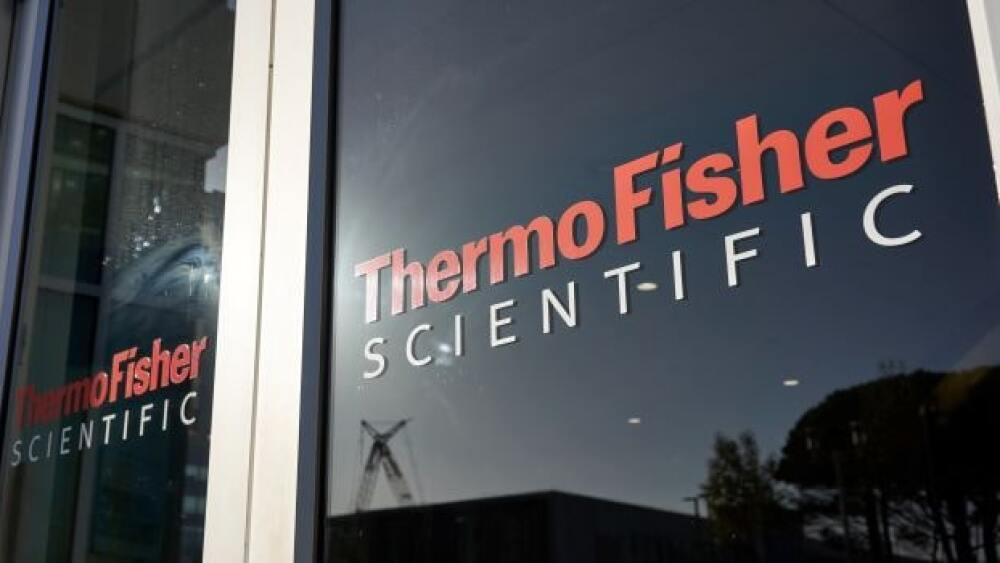The duo’s mission is to identify more patients who could benefit from precision medicines by deploying more CDx tests to healthcare providers.
Thermo Fisher Scientific/Courtesy of Tada Images.
This morning, AstraZeneca and Thermo Fisher Scientific announced a multi-year strategic collaboration to co-develop next-generation sequencing (NGS)-based companion diagnostics (CDx). The partnership will leverage Thermo Fisher’s technology and expertise to inform AstraZeneca’s extensive portfolio of targeted medicines.
Targeted precision therapies make up more than 90% of AstraZeneca’s pipeline across its primary focus areas which include oncology, cardiovascular, renal, metabolic and respiratory disease.
In the respiratory and immunology space, AstraZeneca is aiming to develop earlier, biology-led treatments for asthma and chronic obstructive pulmonary disease (COPD), among other illnesses.
The duo’s mission in the newly minted partnership is to identify more patients who could benefit from precision medicines by deploying more CDx tests to healthcare providers.
“As the pipeline of targeted therapies expands, the availability of diagnostic tools that can interrogate multiple biomarkers simultaneously will ensure patients can be matched with the right therapies more rapidly – this is the promise of precision medicine,” said Garret Hampton, president of clinical next-generation sequencing and oncology at Thermo Fisher Scientific. “Introduction of diagnostic tools early in the process of drug development can further facilitate the success of companion diagnostic development – and that’s what we’re doing with AstraZeneca.”
NGS is a class of technologies that perform DNA and ribonucleic acid (cDNA) sequencing in parallel, allowing for the very specific and highly accurate genomic molecular typing of individuals. These companion diagnostics are increasingly being rolled out across the drug discovery and R&D landscape to match patients to therapies that may have value for treating their unique disease.
“Using the latest diagnostic science allows us to match the best treatment to the patient,” said Ruth March, AstraZeneca’s senior vice president, precision medicine and biosamples. “This collaboration with Thermo Fisher offers the technology, expertise and ability to decentralize CDx tests to local healthcare providers across our global markets, which will help us identify more patients around the world who may benefit from treatments and effective patient care.”
March’s precision medicine and genomics division consists of over 120 diagnostic and genomics experts located across the globe. In a 2019 interview with the European Pharmaceutical Review, March stated that the team has delivered 25 approved diagnostic tests linked to five precision medicines, including the world’s first use of circulating tumor DNA (ctDNA) in blood to guide therapy and decrease the clinical risks associated with solid tumor biopsy.
Offering what it stated is the only globally distributable NGS CDx solution approved and reimbursed by government and commercial insurers in more than 15 countries, including the U.S., Thermo Fisher would seem to be the ideal partner for the globally-focused AstraZeneca. Thermo Fisher’s Oncomine Dx Target Test is also available in Japan, South Korea and multiple countries across Europe and the Middle East.
In an effort to expand global access to targeted therapies and further expedite the application of results, Thermo Fisher came out with the Ion Torrent Genexus System in 2019. The company states that the turnkey NGS solution automates the specimen-to-report workflow and delivers results in a single day with just two user touchpoints. The system is currently approved for research purposes only.
AstraZeneca and Thermo Fisher did not disclose any further details or the exact terms of the agreement.






